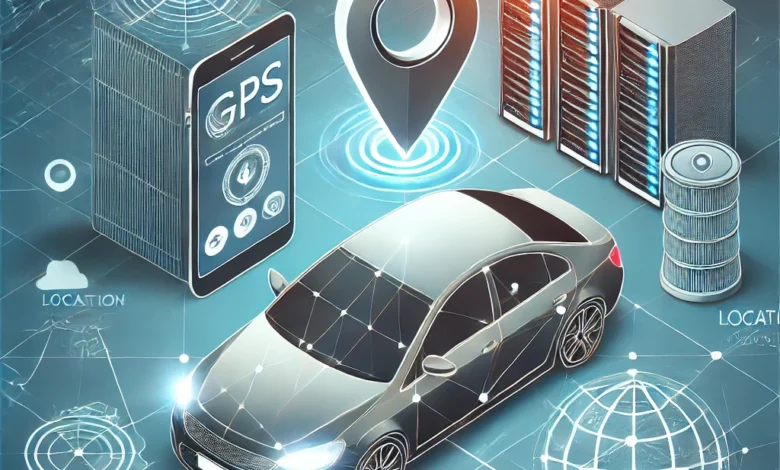The Ultimate Guide to Car Trackers: How They Work and Why You Need One

The urgent need for vehicle safety and protection has grown significantly because of today’s high-speed social environment. Car owners depend on tracking devices to ensure essential oversight of their vehicle’s location and protection from theft. Understanding the benefits of car trackers for managing fleets or owning individual vehicles simplifies future decisions about car trackers.
What Is a Car Tracker?
A car tracker uses GPS (Global Positioning System) and alternative tracking systems to create precise vehicle location data reports. These devices’ compact design and easy installation capabilities allow owners to access advanced features, including geo-fencing capabilities, speed alerts, and route history monitoring. Car trackers in modern markets use smartphone application integration to let users monitor real-time vehicle data through their mobile device displays.
How Does a Car Tracker Work?
GPS tracking devices installed into vehicles or assets will provide real-time data about their location, speed, and unnecessary idle time and diagnostic information. Global Positioning System (GPS) satellites perform precise Earth-location determination for vehicles and equipment at each moment. Position data, speed readings, idle duration, and other variables gathered by the tracker get stored as a compact digital file within the device’s SIM card memory or a convenient cloud platform. This technology’s key features are sustainable continuous monitoring and enhanced operational efficiency.
The system works in three key steps:
- Data Collection: GPS signals help the tracker collect location data.
- Data Transmission: A server receives transmission of this data from cellular networks.
- User Access: Users can find processed information through any app or platform.
Types of Car Trackers
The market offers tracking solutions in multiple formats so users can choose between different needs and budget requirements. Here are the main categories:
- Plug-and-Play Trackers are easy to install and typically connect to the car’s OBD-II port. They are ideal for individual users and small businesses.
- Hardwired Trackers are more discreet and secure. They are installed directly into the vehicle’s electrical system and prove effective for continuous, long-term applications.
- Portable Trackers: The compact portable battery-operated tracking system constitutes a perfect solution whenever people require temporary Use or their vehicles lack built-in OBD-II ports.
Key BenefitsUse Using a Car Tracker
- Theft Recovery: Motor vehicle theft happens frequently in vehicle owners’ lives. Through tracking services, you can locate your car quickly if someone steals it.
- Real-Time Monitoring: Trackers alert you about your vehicle’s current position. This monitoring capability makes the tracking system easy to use, helping parents with teen drivers and business fleet management
- Improved Safety: Several trackers give owners access to future such as speed alert notifications and safety zones, which create safety measures and stop unauthorized Use of vehicles.
- Cost Savings: Tracking system-equipped vehicles qualify motorists for insurance discounts that lower their costs.
- Fleet Management: Organizations that utilize vehicle tracking devices enhance their route design while they track driver conduct and produce better operational results.
How to Choose the Right Car Tracker
When selecting a car tracker, consider the following factors:
- Features: Features including real-time tracking, geo-fencing capabilities, speed alarms, and smartphone application integration need your attention when choosing a tracker.
- Ease of Installation: First, decide whether to use an automated plug-and-play system or a wired tracking solution or opt for a mobile installation device.
- Subscription Costs: A few tracking systems enforce regular payment obligations for data communication purposes and the usage of their advanced operating capabilities. Choose between different plans to discover the most cost-effective option.
- Battery Life: The Life of the battery becomes essential when selecting mobile trackers. Find a tracker with outstanding battery Life because it will give you extended performance.
- Compatibility: Check that the model works with your automobile and the instruments you employ to track its location.
Legal Considerations
Car trackers require an understanding of legal requirements during installation. You can legally use a car tracker on your vehicle throughout most areas. Tracking the movements of another vehicle without their permission subjects you to legal penalties. You should always follow every regulation that exists in the area where you are located.
Future Trends in Car Tracking Technology
Fast advancements within the car tracking industry involve AI system integration, improved data analysis capabilities, and Internet of Things connectivity features. Car trackers of the future must develop three significant functions, including anticipatory maintenance reporting, effortless syncing with everything inside the smart home realm, and independent self-driving vehicle capability.
Conclusion
A car tracker is an intelligent safety purchase that delivers relief and security while projecting control over vehicle operations. The market provides tracking solutions for all users’ needs and financial constraints. Car tracking technology benefits personal vehicle protection and fleet control, collectively establishing safer, more efficient driving methods

